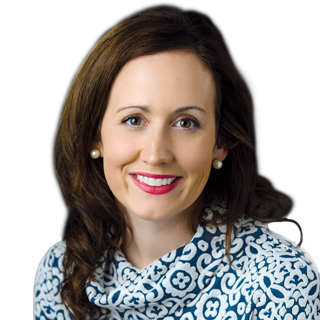
We have all waited patiently for this day.
We even sent in our wish lists for consideration.
And with much anticipation and while many of us were spending time participating in the Skilled Nursing Facility Quality Reporting Program trainings, on the final day in July, the release hit our inboxes.
What exactly have we as therapists been gifted regarding payment reform?
The SNF final rule includes policies that continue a commitment to shift Medicare payments from volume to value, with continued implementation of the SNF Value-Based Purchasing and SNF QRP.
Additionally, the Centers for Medicare & Medicaid Services clarified that the Patient Driven Payment Model will take effect beginning on October 1, 2019. This new case-mix model focuses on the patient’s condition and resulting care needs rather than on the amount of care (i.e. volume) provided to determine Medicare payment.
Specifically, from a therapy perspective, therapists will have case-mix determinants based on clinical areas of the Minimal Data Set in addition to clinical categories which are associated with the acute care stay necessitating the need for a post-acute care level of care in the SNF environment.
Do you see this as a lump of coal or the ultimate dream gift? I am leaning towards option two.
We have been granted, gifted, and provided a significant opportunity here for a greater level of engagement within the entire interdisciplinary team.
Long gone are the days of volume-based communication. We will as care providers shift our conversations to areas including clinical presentation; baseline and goal status regarding mobility and activities of daily living; and safe effective discharge planning.
It’s a dream gift in hand. But what are the logical best steps for therapists to make the most of this opportunity?
To begin, seek now full engagement in your facilities clinical coding procedures within the MDS.
Why?
This will be essential to ensure the most accurate and effective coding in areas which will impact your discipline specific case mix in the areas of physical therapy, occupational therapy and speech language pathology.
Physical and occupational therapists should collaborate in coding the following areas of Section GG:
- Section GG:
- GG0130A1 Eating
- GG0130B1 Oral Hygiene
- GG0130C1 Toileting Hygiene
- GG0170B1 Sit to Lying
- GG0170C1 Lying to Sitting on Side of Bed
- GG0170D1 Sit to Stand
- GG0170E1 Chair/Bed-to-Chair
- GG0170F1 Toilet Transfer
- GG0170J1 Walk 50 Feet with Two Turns
- GG0170K1 Walk 150 Feet
Speech Language Pathology should engage for the areas below from Section K in addition to Sections B and C:
- Section K: Swallowing and Nutritional Status
- K0100A Loss of liquids/solids from mouth when eating or drinking
- K0100B Holding food in mouth/cheeks or residual food in mouth after meals
- K0100C Coughing or choking during meals or when swallowing medications
- K0100D Complaints of difficulty or pain with swallowing
- K0100Z None of the above
- K0510C2 Mechanically Altered Diet While a Resident
Second, take time to express your value in coding accuracy for PDPM as well as regulatory requirements for elements in the CMS Quality Reporting Program. The data collection time frame for this program begins October 1 through Dec 31, 2018 and impacts FY 2020 annual payment update.
Which areas are included in data collection?
The same areas which are included within PDPM for Section GG. Additionally, we will see new elements added in self-care and mobility sections in October, both of which therapy engagement will be crucial for full IDT engagement and coding accuracy.
These areas include addition of showing, upper and lower body dressing, and putting on/taking off footwear to the self-care section and rolling left-right, car transfer, walking 10 feet, walking 10 feet on uneven surfaces, stepping over a curb, using 4-steps, using 12 steps, and picking up an object all being added to the mobility section.
Gift in hand, it is time for us as therapists to help support the teams on which we serve, sharing our knowledge and skill.
And if this is Christmas in July, I can’t wait to see what the New Year holds.
Renee Kinder, MS, CCC-SLP, RAC-CT, is Director of Clinical Education for Encore Rehabilitation and is the Silver Award winner in the 2018 American Society of Business Publishing Editors competition for the Upper Midwest Region in the Service/How To Blogs category. Additionally, she serves as Gerontology Professional Development Manager for the American Speech Language Hearing Association’s (ASHA) gerontology special interest group, is a member of the University of Kentucky College of Medicine community faculty, and is an advisor to the American Medical Association’s Relative Value Update Committee (RUC) Health Care Professionals Advisory Committee (HCPAC).





